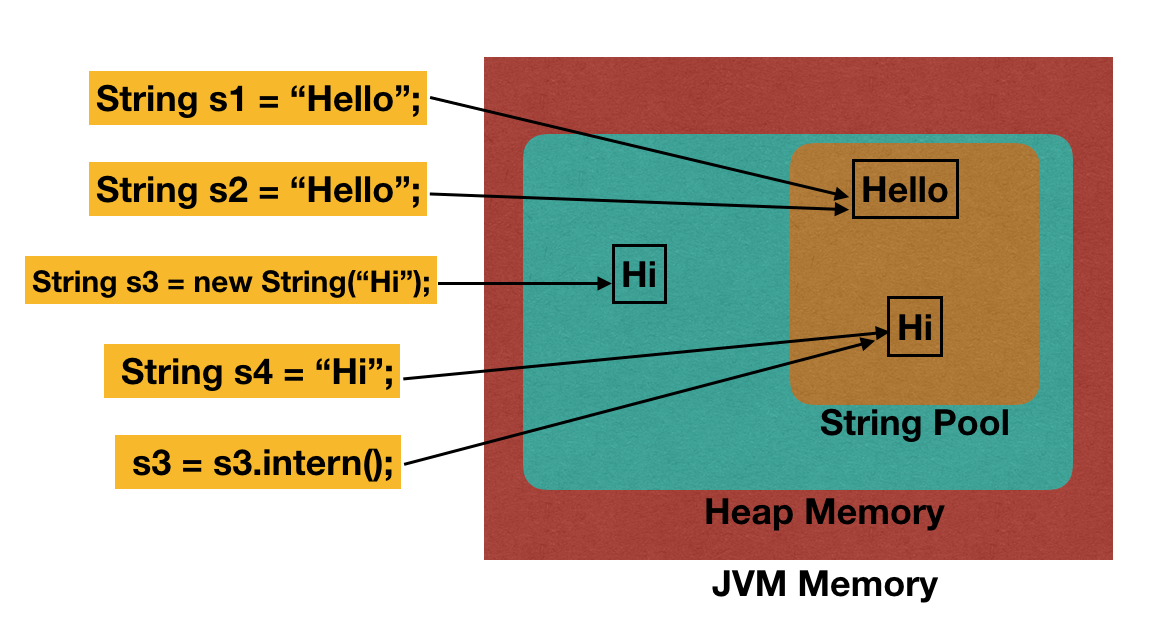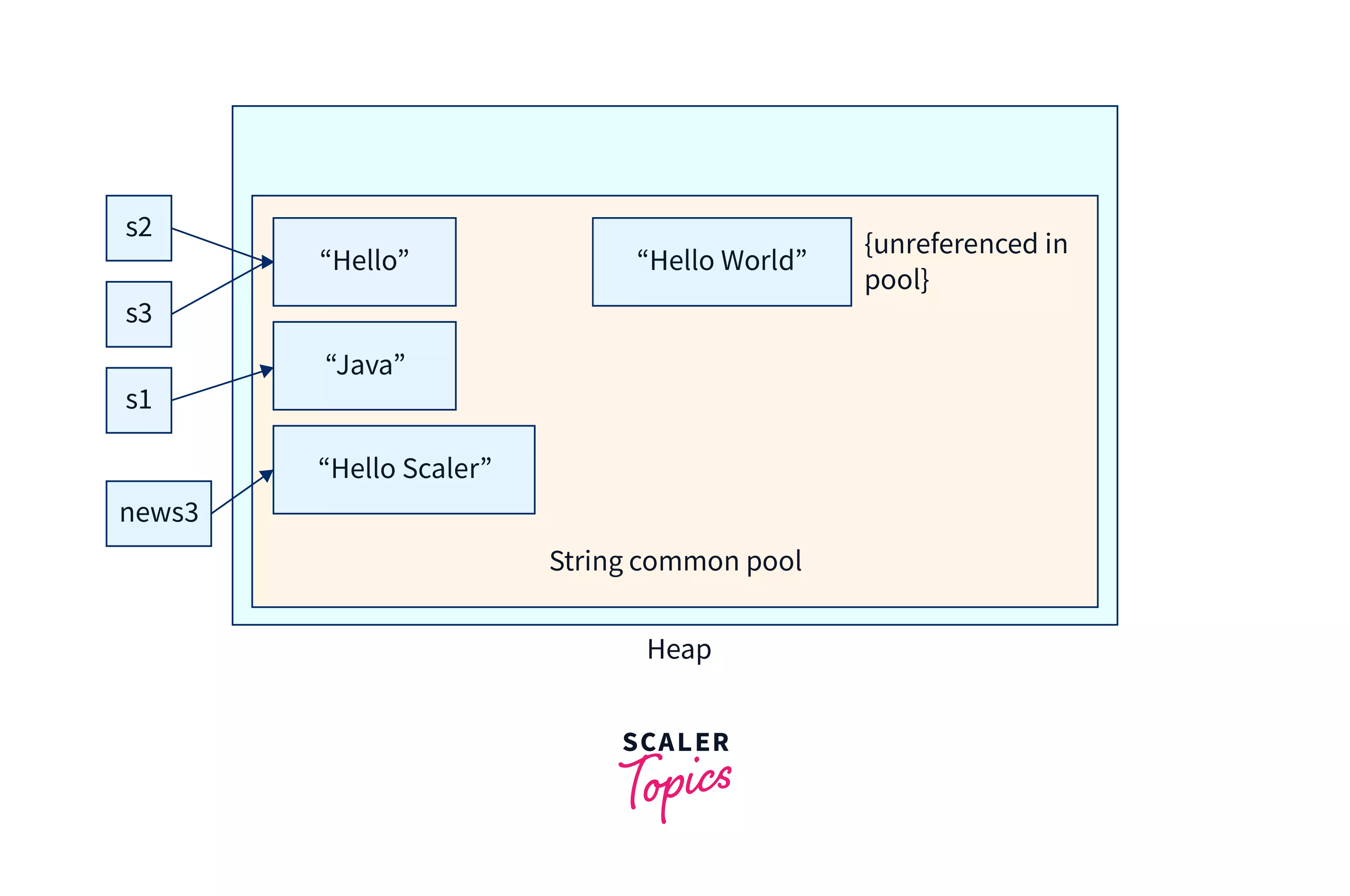Why Are Strings Immutable in Java? Safety And Security and Performance Advantages
Why Are Strings Immutable in Java? Safety And Security and Performance Advantages
Blog Article
What Is Unalterable Strings and How It Functions
In the world of shows, understanding the idea of immutable strings is paramount for developing safe and secure and robust applications. Immutable strings refer to strings that can not be changed after they are created, guaranteeing data honesty and predictability within the code. This essential concept plays a crucial duty in various programming languages and supplies a distinct method to taking care of data. By discovering the intricacies of just how unalterable strings work, one can uncover a globe of advantages and possibilities that can raise the quality and efficiency of software program growth.
The Basics of Immutable Strings
Unalterable strings, as a fundamental idea in programming, are character series that can not be changed once they are produced. This indicates that once a string is appointed a worth, that value can not be modified. In languages like Python and Java, strings are unalterable items, leading to various ramifications in terms of memory monitoring and data integrity.
One of the crucial benefits of immutable strings is that they supply a sense of protection in data control. Since the content of an immutable string can not be customized, it guarantees that the initial data remains intact, minimizing the risk of unexpected changes during program implementation (Why are strings immutable in Java?). This residential or commercial property additionally streamlines debugging procedures, as designers can rely on that as soon as a string is defined, its value will certainly not be accidentally modified
When a brand-new string is produced based on an existing one, rather than modifying the initial string, the new worth is stored independently. In general, comprehending the basics of immutable strings is essential for grasping programming ideas and enhancing code efficiency.
Benefits of Unalterable Strings
Building upon the security and effectiveness benefits of unalterable strings, their benefits encompass boosting code reliability and streamlining concurrent shows tasks. By being unalterable, strings can not be customized after development, which gets rid of the risk of unintended changes in the data they keep. This integral immutability guarantees that as soon as a string is developed, its value remains consistent throughout the program's execution, reducing the chances of insects triggered by unanticipated changes.
Additionally, unalterable strings add to code integrity by making it easier to reason regarding the state of a program. Since strings can not be altered, programmers can trust that a string will always hold the very same value, streamlining debugging and maintenance initiatives. This predictability brings about a lot more steady and reliable codebases.

Implementation in Programming Languages
Within various programs languages, the consolidation of unalterable strings is a basic facet that influences exactly how data is handled and manipulated within code frameworks. The application of unalterable strings differs throughout various programs languages, with each language providing its own systems to support this idea.

In contrast, languages like C and C++ do not have integrated support for immutable strings. Designers in these languages have to manually execute immutability by implementing regulations within their code to avoid direct alterations to string items.
Best Practices for Dealing With Unalterable Strings
When handling immutable strings Home Page in programming languages like Java and Python, adhering to finest methods guarantees efficient and protected information adjustment. Among the crucial ideal methods is to utilize StringBuilder or StringBuffer as opposed to straight controling strings, especially when handling substantial concatenation operations. These courses offer mutable options for string adjustment, aiding to stay clear of unnecessary memory appropriations and enhancing efficiency.
Additionally, when working with delicate data such as passwords or API tricks, it is crucial to avoid storing them as plain message in webpage unalterable strings. Making use of secure storage space mechanisms like char ranges or specialized collections for taking care of sensitive info assists mitigate protection dangers associated with immutable strings.
Real-world Applications and Examples
Checking out functional executions of immutable strings in different markets reveals their considerable effect on data stability and system dependability. In the medical care field, unalterable strings play a crucial duty in making certain the security and discretion of individual information. By avoiding unauthorized alterations to sensitive information such as clinical documents and prescriptions, unalterable strings aid maintain compliance with stringent privacy guidelines like HIPAA.
Financial establishments likewise benefit from the unalterable nature of strings to improve the safety and security of customer data and transaction records. Unalterable strings aid stop scams and unapproved alterations to economic details, providing a robust protection against cyber hazards and making certain the depend on and confidence of clients.

Conclusion
Ideal techniques for functioning with immutable strings include preventing straight modifications and using techniques that return new string things. Real-world applications of immutable strings include data encryption, caching, and string manipulation tasks.
Immutable strings refer to strings that can not be changed after they are produced, ensuring data honesty and predictability within the code. When a new string is developed based on an existing one, instead than modifying the initial string, the brand-new value is kept independently.In languages like Java and Python, strings are unalterable by default, indicating that as soon as a Full Article string object is created, its value can not be changed - Why are strings immutable in Java?. Best methods for working with immutable strings include avoiding straight modifications and making use of approaches that return brand-new string objects. Real-world applications of immutable strings consist of information encryption, caching, and string control jobs
Report this page